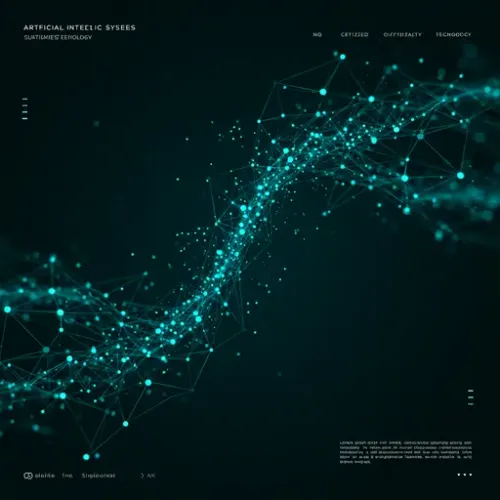Does artificial intelligence help uni students learn smarter or just faster?

The AI Report
Daily AI, ML, LLM and agents news
Unlocking AI's True Potential: Smarter Learning, Not Just Faster
The integration of artificial intelligence tools, particularly generative AI like ChatGPT, has profoundly reshaped the landscape of higher education. While many wonder if AI simply offers students a quicker path to completing assignments, groundbreaking research from the University of South Australia offers a nuanced perspective: AI's true value lies not in speed, but in how deeply students engage with it. It’s a powerful distinction that shifts the conversation from merely *using* AI to *mastering* its potential for genuine intellectual growth.
The Heart of the Research: Mindset Matters
A comprehensive study involving 435 university students from Australia and Canada delved into the intricate relationship between students' learning habits and their interaction with AI tools. The findings are clear: how students approach AI is a direct reflection of their broader learning strategies. Crucially, the research highlights that students possessing strong self-regulated learning skills—those who are motivated, confident in their abilities, and adept at managing their effort—are far more likely to harness AI as a meaningful aid for deeper learning.
Conversely, students who view AI merely as a shortcut for academic tasks risk superficial engagement, potentially bypassing the opportunity for genuine skill development. This isn't just about finishing faster; it's about whether the interaction with knowledge truly expands understanding. When students feel confident in their capabilities, they naturally gravitate towards more sophisticated and beneficial uses of technological tools, including AI.
Beyond the Shortcut: Embracing Deeper Engagement
The study clearly differentiates between students using AI for academic purposes and those utilizing it for general work or personal tasks. Unsurprisingly, those who integrated AI into their university studies found it significantly more useful. This reinforces a pivotal concept: structured self-regulation paired with a clear academic purpose amplifies the effectiveness of AI adoption. The concern isn't the presence of AI, but the quality of interaction.
If students engage with AI critically, actively evaluating its responses and challenging their own understanding, AI becomes an invaluable enhancer. However, if it serves solely as a means to expedite task completion, there's a tangible risk of neglecting the development of vital problem-solving skills and independent thinking. AI should elevate learning, not replace it.
Key Takeaways for Students: How to Learn Smarter with AI
- Cultivate Self-Regulation: Approach your studies with intrinsic motivation and a clear plan. When you're in control of your learning process, AI becomes a powerful ally, not a crutch.
- Build Confidence: Believe in your ability to master complex concepts. This self-efficacy encourages you to explore AI's deeper functionalities, pushing beyond basic queries.
- Engage Critically: Don't just accept AI's output. Question it, verify it, and use it as a starting point for your own research and analysis. Challenge the responses to deepen your understanding.
- Use AI to Enhance, Not Replace: Think of AI as a sophisticated tutor or research assistant. Employ it to generate ideas, explain challenging concepts, or even provide preliminary critiques of your work. This proactive engagement strengthens your critical thinking.
- Focus on Academic Purpose: Direct your AI use towards specific learning goals for your university studies. This focused application yields greater benefits than casual or non-academic use.
A Call to Action for Universities: Guiding the AI Revolution
As AI undeniably reshapes higher education, universities bear a significant responsibility to guide students towards beneficial integration. The research offers a clear roadmap:
- Model Responsible AI Use: Educators should actively demonstrate how AI can be leveraged in classrooms to strengthen critical thinking and foster independent learning. Showcase practical examples of AI generating diverse ideas, simplifying complex theories, or providing constructive feedback on drafts.
- Foster Self-Efficacy and Effort Regulation: Integrate pedagogical approaches that build student confidence in their learning abilities and encourage perseverance through academic challenges. Students equipped with these skills are naturally more disposed to using AI effectively.
- Equip with Strategies: Provide explicit instruction on how to use AI tools strategically and ethically. This includes teaching students how to critically evaluate AI-generated content, understand its limitations, and avoid pitfalls like over-reliance or academic misconduct.
- Promote Independent Thinking: The ultimate goal is to ensure AI supports, rather than supplants, students' capacity for independent thought and problem-solving. Design assignments and discussions that necessitate critical engagement with AI, pushing students to synthesize, analyze, and innovate beyond what an AI can simply generate.
The Path Forward: Cultivating AI Literacy
Artificial intelligence is not a passing trend; it is an embedded component of modern education and professional life. The imperative for universities and students alike is to move beyond the superficial application of AI. By fostering self-regulated learning, promoting critical engagement, and strategically integrating AI into the curriculum, we can ensure that this transformative technology helps university students learn not just faster, but genuinely smarter, cultivating the thoughtful and capable minds our future needs.

The AI Report
Author bio: Daily AI, ML, LLM and agents news
